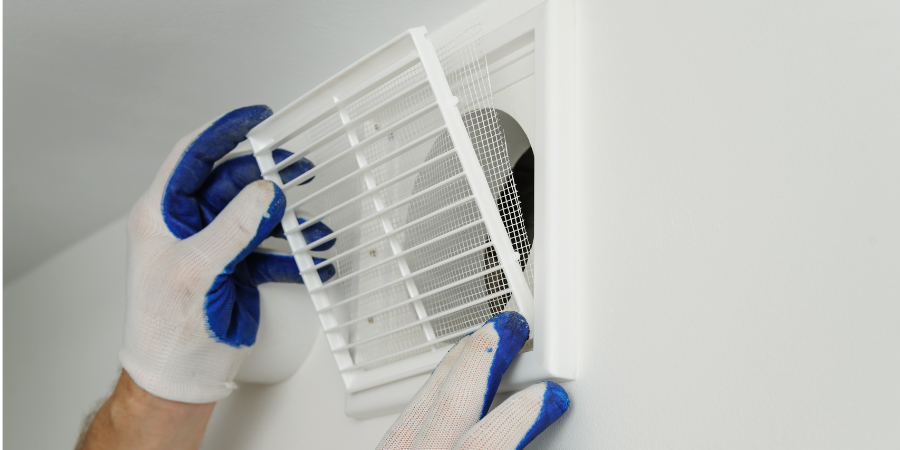Proper ventilation in plumbing systems is a crucial yet often overlooked component of a building’s infrastructure. Ventilation ensures the efficient flow of water and waste through pipes while preventing the accumulation of harmful gases that can affect the health and safety of occupants. At OVC Plumbing and Drain, we emphasize the importance of understanding and maintaining effective ventilation within your plumbing system. A well-ventilated plumbing network not only supports functionality but also contributes to the longevity and efficiency of your entire plumbing system.
In this article, we will delve into the significance of plumbing ventilation, exploring its fundamental role in ensuring smooth water flow and maintaining indoor air quality. By examining common issues that arise from inadequate ventilation and providing practical solutions, we aim to enhance your awareness of this essential aspect of plumbing systems. Whether you are a homeowner, a business owner, or simply interested in understanding more about how plumbing works, this comprehensive guide will equip you with the knowledge to identify and address ventilation-related challenges.
The Role Of Ventilation In Plumbing Systems
Ventilation in plumbing systems serves multiple critical functions, from maintaining proper pressure balance to ensuring safety and efficiency. By understanding these roles, you can better appreciate the need for a well-designed plumbing system and understand why DIY plumbing can be dangerous.
Pressure Regulation
Pressure regulation is a fundamental aspect of plumbing ventilation. Vent pipes help maintain a balance between atmospheric pressure and the pressure within the plumbing system. This balance prevents airlocks and ensures that water flows smoothly through the pipes without creating negative pressure, which can lead to slow-to-empty fixtures or siphoning of trap seals.
Odor Control
Another essential function of plumbing ventilation is odor control. Proper ventilation prevents the buildup of sewer gases in pipes by allowing these gases to escape safely into the atmosphere. Without adequate ventilation, gases such as methane and hydrogen sulfide can accumulate and seep into living spaces, causing unpleasant odors and posing health risks to occupants.
Health And Safety
Ventilation in plumbing systems also plays a crucial role in health and safety. Accumulation of sewer gases can lead to hazardous conditions, including the risk of explosion or exposure to toxic fumes. Vent pipes channel these gases away from the building to the outdoors, ensuring a safe environment for residents and workers.
Components Of A Ventilation System
To fully understand plumbing ventilation, it’s important to recognize the key components that make up a typical system. These components work in unison to ensure the effective airflow and pressure regulation required of the ventilation system.
Vent Pipes
Vent pipes are integral to any plumbing system, allowing air to enter and escape the pipes. They help maintain pressure balance, prevent siphoning of water traps, and enable the safe release of sewer gases. There are different types of vent pipes, each serving a specific purpose within the system.
Main Vent
The main vent is the primary vertical pipe that connects the drainage system to the atmosphere. It ensures that air can flow freely through the entire plumbing network, maintaining pressure equilibrium and allowing gases to escape.
Branch Vents
Branch vents connect individual fixtures to the main vent. They provide additional airflow and prevent pressure fluctuations that can disrupt the drainage process. By linking sinks, toilets, and other fixtures to the main vent, branch vents enhance the overall efficiency of the plumbing system.
Vent Stack
The vent stack is a vertical pipe that runs through the roof of the building, providing an outlet for sewer gases to be safely expelled into the atmosphere. It plays a critical role in maintaining air pressure and preventing backflow of gases into the living spaces.
Common Ventilation Issues
Despite their importance, ventilation systems can encounter several common issues that compromise their effectiveness. Recognizing these problems early can prevent costly repairs and ensure the smooth operation of your plumbing system.
Clogged Vent Pipes
Clogged vent pipes are a frequent problem in plumbing systems. Debris, leaves, or nests can block the vent openings, restricting airflow and causing pressure imbalances. This can result in slow drainage, noisy pipes, or unpleasant odors. Regular inspection and cleaning of vent pipes can help prevent these issues.
Improper Installation
Improper installation of vent pipes can lead to a host of problems, including inadequate airflow and pressure imbalances. Ensuring that vent pipes are correctly sized, positioned, and connected is essential for optimal performance. Professional installation by experienced plumbers can prevent these issues and ensure the longevity of your plumbing system.
Vent Pipe Damage
Vent pipes are susceptible to damage from various sources, including weather conditions, physical impact, or corrosion. Damaged pipes can lead to leaks, reduced airflow, or contamination of the plumbing system. Regular maintenance and timely repairs are crucial to addressing vent pipe damage and maintaining the system’s integrity.
Benefits Of Proper Ventilation
Proper ventilation in plumbing systems offers numerous benefits, ranging from enhanced performance to improved indoor air quality. Understanding these advantages can motivate homeowners and business owners to prioritize ventilation maintenance.
Efficient Drainage
Effective ventilation ensures smooth and efficient drainage by preventing airlocks and pressure imbalances. This results in faster water flow, reduced risk of clogs, and minimal disruptions to your plumbing system. Properly vented pipes also prevent water seal siphoning, which can lead to unpleasant odors and drainage issues.
Improved Air Quality
Maintaining proper ventilation contributes to improved indoor air quality by preventing the buildup of sewer gases. By allowing these gases to escape safely, a well-ventilated plumbing system ensures a healthier environment for occupants, reducing the risk of respiratory issues and other health concerns.
Extended System Lifespan
Regular maintenance and proper ventilation can significantly extend the lifespan of your plumbing system. By preventing pressure fluctuations, clogs, and damage to pipes, a well-ventilated system operates more efficiently and requires fewer repairs. This translates to long-term cost savings and reduced inconvenience for homeowners and businesses.
Looking For A Reliable Plumber To Correctly Install Your Plumbing Ventilation?
In conclusion, the importance of ventilation in plumbing systems cannot be overstated. Ventilation plays a vital role in maintaining pressure balance, controlling odors, and ensuring the health and safety of building occupants. By understanding the components and common issues associated with plumbing ventilation, homeowners and business owners can take proactive steps to maintain their systems.
At OVC Plumbing and Drain, we are committed to providing expert solutions for all your plumbing needs, including ventilation system design, installation, and maintenance. Our team of experienced plumbers is equipped to address any ventilation-related issues and ensure your plumbing system operates at peak efficiency. Contact us today to learn more about our services and how we can help you remedy any ventilation problems so you can enjoy the peace of mind every homeowner deserves!






